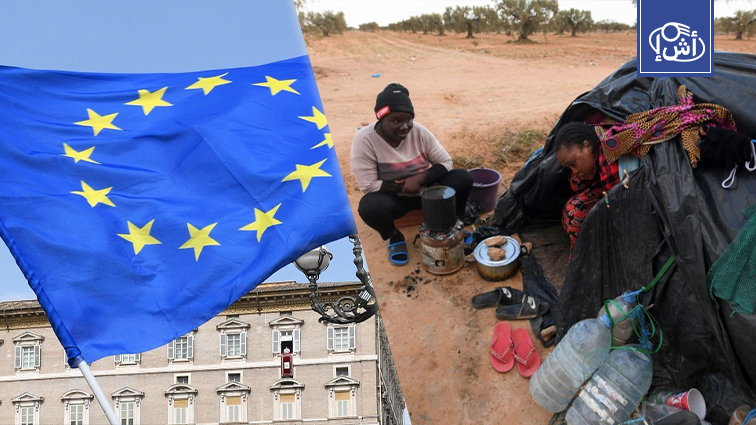A journalistic investigation has revealed the role of Tunisia, Morocco and Mauritania in transporting migrants and leaving them in the Sahara, funded by the European Union.
The report was widely alarmed, as it was conducted by the Lighthouse Reports consortium in cooperation with media outlets such as Le Monde and The Washington Post, indicating the EU’s support for mass displacements carried out by these countries.
Migrants, who are arrested based on the color of their skin, are transported to remote desert areas without providing water or food or sold to traffickers.
This comes within the framework of agreements concluded by the European Union with the three countries to enhance their capabilities in curbing illegal immigration to Europe, where Brussels has allocated hundreds of millions of euros to these countries.
The EU’s efforts come as it seeks to place the task of stemming the flow of migrants across the Mediterranean on African countries, in parallel with sweeping reforms to newly agreed asylum laws. These reforms aim to strengthen border controls and speed up the deportation of those whose asylum claims are rejected.
The Lighthouse Reports consortium said it interviewed more than 50 migrants expelled from the three North African countries, all from sub-Saharan Africa and West Africa.
Their testimonies, supported by videos and photos, revealed the systematic nature and racist motivations of those practices, along with evidence collected by the coalition itself.
Regarding the EU’s position, European officials denied that EU funds were used to violate migrants’ rights, but acknowledged the difficulty of providing a full explanation of how the funds were used.
The European Commission did not explicitly respond to the report’s allegations, but Commission spokeswoman Ana Besonero said: “Sometimes the situation is difficult in our partner countries… But they remain sovereign states and control their national forces.”
Bisonero stressed that the EU monitors the programs it finances and noted the commitments of partner countries to abide by the principles of international law and human rights.
The European Union, which includes 27 countries, has allocated significant funds to Tunisia, Morocco and Mauritania under these cooperation agreements, with 150 million euros allocated to Tunisia, 210 million euros to Mauritania and 624 million euros to Morocco.
Aguila Saleh Calls on the European Union to Cease the Engagement with the Government of National Unity
